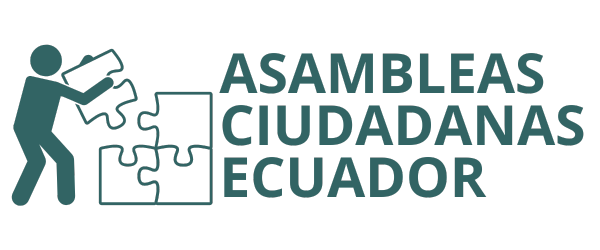Original peoples and nationalities of Ecuador in the framework of a change of vertical to horizontal governance in the country.
Maintaining the autonomy of indigenous peoples and nationalities is a critical consideration when restructuring a national government from vertical to horizontal. These peoples have cultures, identities and rights that must be respected and protected.
Here are some key steps to ensure your autonomy during the restructuring process:
Recognize Indigenous Rights
It is necessary to recognize and reaffirm the inherent rights of the original peoples and nationalities, as recognized in international law, national legislation and the treaties and agreements signed by the Ecuadorian state. This includes the right to self-determination, territorial rights, cultural rights, and the right to maintain and develop their political, economic, and social institutions.Consultation and Free, Prior and Informed Consent
The original peoples and nationalities of Ecuador must have the fully guaranteed right to participate in processes of consultation and meaningful collaboration throughout the restructuring process.
Respecting the principle of free, prior and informed consent (FPIC), ensuring that decisions that affect indigenous peoples are made with their full participation, understanding and agreement is a fundamental step for the success of this process.Legal reforms and agreements
The current national laws and constitutional frameworks should be reviewed so that they include provisions that recognize and protect explicitly the rights and autonomy of the original peoples and nationalities of Ecuador. It is necessary to develop mechanisms that give peoples and nationalities the authority to govern their own territories, make decisions and manage their resources in accordance with their own laws, customs and traditions.Self-governance structures
It is essential during this transition process to support the establishment or strengthening of self-government structures for the original peoples and nationalities. This may include the creation and strengthening of their own assemblies, councils or governing bodies that have decision-making powers and jurisdiction over specific areas, such as land management, education, health, justice and cultural preservation.Resource allocation and economic development
Ensure that indigenous nations have access to resources and support for their economic development. This may involve income sharing mechanisms, preferential access to land and natural resources, and capacity building programs to enhance their economic self-sufficiency and promote sustainable development.Cultural and linguistic preservation
Recognize and support the preservation and revitalization of indigenous cultures, languages, and traditional knowledge. Foster the integration of indigenous knowledge systems in decision-making processes and promote cultural programs, education and initiatives that celebrate and protect indigenous heritage.education and training
Invest in education and training programs that empower indigenous communities to fully participate in decision-making processes and governance structures. This includes providing opportunities for capacity building, leadership development, legal education and training in areas relevant to self-governance, which also includes ethical digital software to enhance communication and collaboration.
Intercultural dialogue and collaboration
Promote intercultural dialogue and collaboration between native peoples and nationalities and Ecuadorian society in general.
Promoting mutual understanding, respect and cooperation between indigenous and non-indigenous communities, recognizing the contributions and unique perspectives of indigenous peoples will make Ecuador truly a plurinational country rich in its multiculturalism.Monitoring and evaluation
Establish follow-up and evaluation mechanisms for the implementation of autonomy measures in the territories of the original peoples and nationalities that regularly evaluate the progress, challenges, and impacts of the restructuring process to identify areas that require adjustments or additional support.International cooperation
Participate in international cooperation and the exchange of knowledge with other countries that have experience in respecting the rights and autonomy of indigenous peoples. Learn from successful models and best practices that have been implemented in similar contexts.It is crucial to approach the restructuring process with sensitivity, respect and inclusion, taking into account the diverse needs and aspirations of the indigenous peoples and nationalities of Ecuador. Ongoing collaboration, partnership, and dialogue with indigenous leaders and organizations are essential to ensure that the autonomy and self-determination of native peoples and nationalities are maintained throughout the process.
